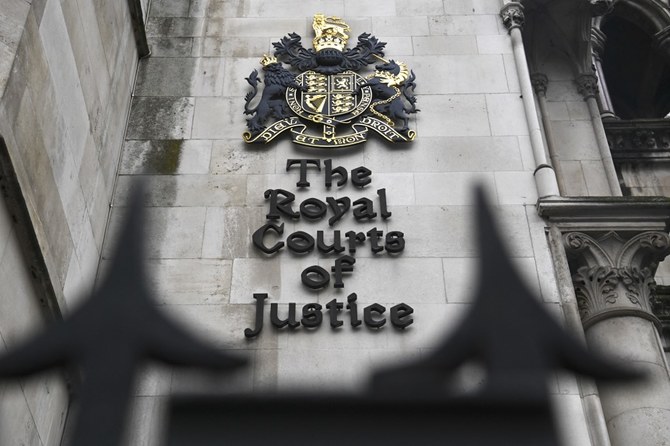LONDON: A young man who stalked his ex-girlfriend and threw acid in her face in Brighton, UK, has had his sentence increased after a judge found that his previous penalty was “unduly lenient.”
Junior doctor Rym Alaoui was subjected to the brutal attack on her doorstep when she was tricked by Milad Rouf.
Rouf, himself a medical student, traveled across Britain to Brighton and disguised himself in a fat suit to carry out the attack, which has left Alaoui with life-changing injuries.
He was initially handed an 11-year prison sentence, with four years on license, by a judge in October.
But following a hearing Wednesday, judges increased his sentence to 15 years behind bars, with a four-year extended license.
Lord Justice Fulford, sitting with Justice Goss and Sir Andrew Nicol, ruled the original sentence had been “unduly lenient,” noting the domestic context of the case.
Fulford said: “This offense was a form of domestic abuse,” adding that the extent of Rouf’s planning was “striking.”
He noted the “devastating” injuries caused by the acid, including blindness in one eye, and said that Alaoui did not know whether she would be able to return to her profession because of her injuries.
Chalk said: “Rouf’s crime was shocking and has severely impacted the future of a young doctor — who lives to heal others — by robbing her of her sight in one eye.
“I hope the court’s decision to increase his sentence acts as a warning to those who think of acting in such a cruel and barbaric way.”
During his October sentencing, Judge Christine Laing QC said the trauma suffered by Alaoui was “unimaginable.”
She said: “You bought sulphuric acid, as a trainee doctor you would know far better than most people the devastating consequences that has when applied to the human body.”
Judge Laing said Rouf acted out of “simple jealousy and anger at being rejected.”
The court heard at the time that Rouf and Alaoui had had a short relationship while studying together in Cardiff, but Alaoui broke it off when she was offered a job as a doctor in East Sussex.
Instead of moving on, Rouf spent weeks planning his attack before traveling to Brighton on May 20.
Wearing his disguise of a fat suit, sunglasses, and make-up, he knocked on her door and handed her a threatening note — so she would not know it was him when he spoke — before throwing sulphuric acid in her face.
Despite her immediate response of going to the shower to wash it off, and the interventions of medical workers, she has been left with devastating injuries.
In a statement read out on her behalf in court, Alaoui said the attack had left her living in “constant physical and psychological pain” and that she feared for her “future wellbeing and socioeconomic hardship.”
“I have been robbed of years of my career and young adult life,” she said. “I cannot begin to imagine how or why someone could commit such a horrible, premeditated attack.”


























